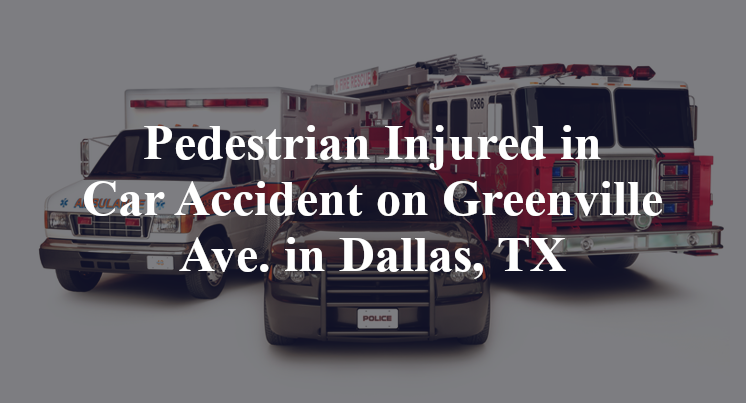Pedestrian Injured in Car Accident on Greenville Ave. in Dallas, TX
Dallas, TX — December 30, 2024, a man was injured in a pedestrian versus car accident at approximately 12:15 a.m. along Greenville Avenue.
According to authorities, a 44-year-old man was on foot on Greenville Avenue in the vicinity south of the Lyndon B Johnson freeway when the accident took place.

The cause of the accident remains unclear. Officials indicate that, for reasons yet to be confirmed, the man was struck by a northbound Honda Accord. The man reportedly sustained serious injuries due to the collision. Additional details pertaining to this incident are not available at this point in time. The investigation is currently ongoing.
Commentary
When a pedestrian is seriously injured in a crash with a moving vehicle, especially during the early morning hours as in this case on Greenville Avenue, it’s easy to focus solely on whether the person was visible or crossing properly. But in my experience, that approach often misses the broader picture. To understand how and why the collision occurred—and whether it could have been prevented—there are three critical questions that every serious investigation must answer.
First, did the authorities conduct a thorough investigation of the scene? Crashes involving pedestrians demand careful scrutiny of lighting conditions, driver visibility, roadway design, and the pedestrian’s path of travel. Was the area properly illuminated? Were there any obstructions or distractions? Was the driver speeding or distracted? These are all questions that should be answered through physical evidence, witness statements, and any available surveillance footage. In an area as busy as Greenville Avenue near LBJ Freeway, the chances of nearby cameras capturing relevant footage are high—but only if someone moves quickly to retrieve it.
Second, has anyone considered whether a vehicle defect might have played a role in the crash? If the Honda Accord experienced a brake failure, headlight malfunction, or electronic stability control issue, the driver may not have been able to respond to the pedestrian in time. Similarly, if the pedestrian was struck with more force than expected, it’s important to examine whether the vehicle’s safety systems functioned as designed. These issues typically won’t be obvious without a forensic examination of the vehicle, which must happen before it’s repaired or altered.
Lastly, has all available electronic and digital data been gathered? Vehicles like the Accord generally contain event data recorders that can provide valuable insights into speed, braking, and steering inputs in the seconds before the crash. If investigators haven’t already, they should also explore local surveillance footage, traffic camera records, and cell phone or GPS data from both the pedestrian and the driver, which can offer vital context. In some cases, that data is the only way to reconstruct the moments leading up to the impact accurately.
Answering these three questions is critical to making sure that no stone is left unturned in understanding the causes of a crash like this. Serious wrecks deserve serious investigation, not assumptions. Getting clear answers to these questions is crucial for those seeking to understand what happened and why—and it's the least that can be done to help those affected find the clarity and closure they deserve.

*We appreciate your feedback and welcome anyone to comment on our blog entries, however all visitor blog comments must be approved by the site moderator prior to showing live on the site. By submitting a blog comment you acknowledge that your post may appear live on the site for any visitors to see, pending moderator approval. The operators of this site are not responsible for the accuracy or content of the comments made by site visitors. By submitting a comment, blog post, or email to this site you acknowledge that you may receive a response with regard to your questions or concerns. If you contact Grossman Law Offices using this online form, your message will not create an attorney-client relationship and will not necessarily be treated as privileged or confidential! You should not send sensitive or confidential information via the Internet. Since the Internet is not necessarily a secure environment, it is not possible to ensure that your message sent via the Internet might be kept secure and confidential. When you fill out a contact or comment form, send us an email directly, initiate a chat session or call us, you acknowledge we may use your contact information to communicate with you in the future for marketing purposes, but such marketing will always be done in an ethical way.